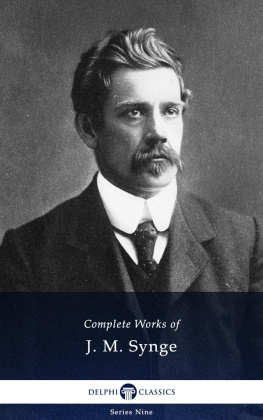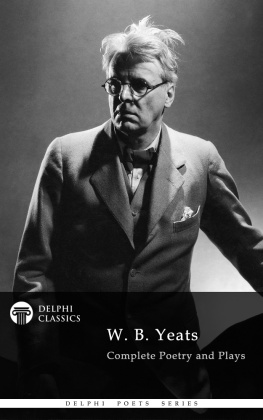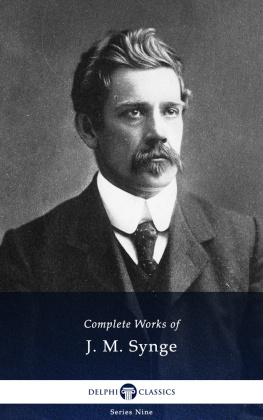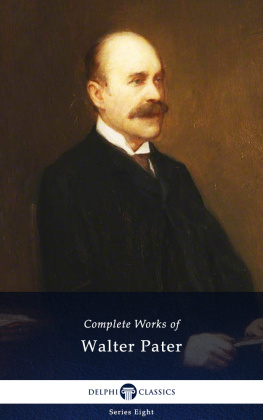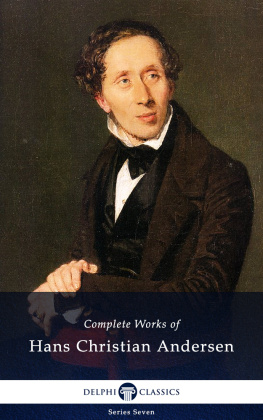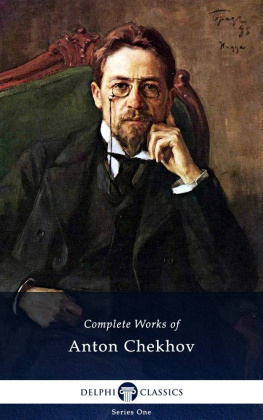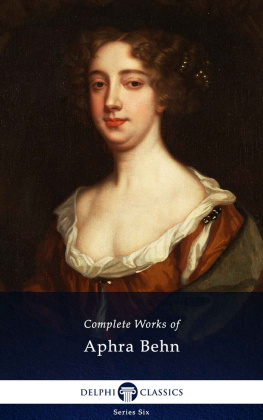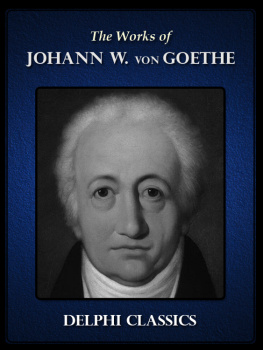The Complete Works of
J. M. SYNGE
(1871-1909)

Contents

Delphi Classics 2018
Version 1


Browse our Main Series

Browse our Ancient Classics

Browse our Poets

Browse our Art eBooks

Browse our Classical Music series

The Complete Works of
J. M. SYNGE

By Delphi Classics, 2018
COPYRIGHT
Complete Works of J. M. Synge

First published in the United Kingdom in 2018 by Delphi Classics.
Delphi Classics, 2018.
All rights reserved. No part of this publication may be reproduced, stored in a retrieval system, or transmitted, in any form or by any means, without the prior permission in writing of the publisher, nor be otherwise circulated in any form other than that in which it is published.
ISBN: 978 1 78656 126 8
Delphi Classics
is an imprint of
Delphi Publishing Ltd
Hastings, East Sussex
United Kingdom
Contact: sales@delphiclassics.com

www.delphiclassics.com
Interested in classic theatre?

Explore Playwrights at Delphi Classics
The Plays

Newtown Villas, Rathfarnham, a Southside suburb of Dublin Synges birthplace

Main Street, Rathfarnham, c. 1905
In the Shadow of the Glen

A PLAY IN ONE ACT
Synges first play was performed at Molesworth Hall, Dublin, on 8 October 1903. The drama is set in an isolated cottage in County Wicklow in that present year. In the Shadow of the Glen opens with a tramp seeking shelter in the isolated farmhouse of Daniel Burke, an elderly farmer. Dan appears to be dead and his young wife Nora is tending to his corpse. Nora goes out to find Michael, a youthful shepherd and Dan reveals to the tramp that his death is only a ruse. When Nora and Michael appear, he plays dead once more, but leaps up in protest when Michael proposes to Nora. Dan kicks Nora out to wander the roads and she leaves with the tramp, who promises her a life of freedom.
The drama is based on a folktale that Synge had collected on his first trip to the Aran Islands, off the coast of Ireland. It is a deceptively simple plot, though it is complex enough to contain most of the themes that the playwright would explore for the rest of his literary career. Firstly, the theme of tension between the basic human need for security and the equally essential urge for freedom is notable. The play contrasts Noras secure domestic existence against the tramps unrestrictive life. Though Noras marriage to Dan for his farm, livestock and money was her bid for security, it has caused her only misery and loneliness. Her leaving with the tramp rather than reconciling with her old husband or accepting the young lover Michael, signifies the importance of freedom, challenging modern views of marriage and a womans role in it.

Synge as a young man
CONTENTS

Molesworth Street, Dublin Molesworth Hall no longer stands
PERSONS

D AN BURKE ( FARMER and herd) George Roberts
NORA BURKE (his wife) Maire Nic Shiubhlaigh
MICHEAL DARA (a young herd) P. J. Kelly
A TRAMP W. G. Fay
IN THE SHADOW OF THE GLEN

S CENE. {T HE last cottage at the head of a long glen in County Wicklow.
Cottage kitchen; turf fire on the right; a bed near it against the wall with a body lying on it covered with a sheet. A door is at the other end of the room, with a low table near it, and stools, or wooden chairs. There are a couple of glasses on the table, and a bottle of whisky, as if for a wake, with two cups, a teapot, and a home-made cake. There is another small door near the bed. Nora Burke is moving about the room, settling a few things, and lighting candles on the table, looking now and then at the bed with an uneasy look. Some one knocks softly at the door. She takes up a stocking with money from the table and puts it in her pocket. Then she opens the door.}
TRAMP {Outside.} Good evening to you, lady of the house.
NORA Good evening, kindly stranger, its a wild night, God help you, to be out in the rain falling.
TRAMP It is, surely, and I walking to Brittas from the Aughrim fair.
NORA Is it walking on your feet, stranger?
TRAMP On my two feet, lady of the house, and when I saw the light below I thought maybe if youd a sup of new milk and a quiet decent corner where a man could sleep {he looks in past her and sees the dead man.} The Lord have mercy on us all!
NORA It doesnt matter anyway, stranger, come in out of the rain.
TRAMP {Coming in slowly and going towards the bed.} Is it departed he is?
NORA It is, stranger. Hes after dying on me, God forgive him, and there I am now with a hundred sheep beyond on the hills, and no turf drawn for the winter.
TRAMP {Looking closely at the dead man.} Its a queer look is on him for a man thats dead.
NORA {Half-humorously.} He was always queer, stranger, and I suppose them thats queer and they living men will be queer bodies after.
Next page
